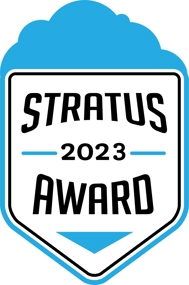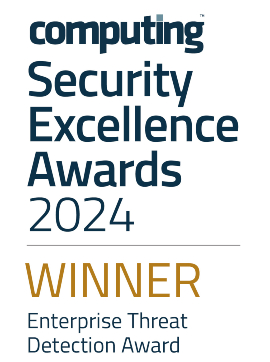
Social Engineering Services
Understand and mitigate human risk to strengthen your organisation's defences
Strengthen your defences against human vulnerabilities
The increasing sophistication of cyber threats often targets your people. Social engineering attacks manipulate individuals into divulging confidential information or performing actions that benefit the attacker, typically without realising it.
At LRQA, our social engineering experts simulate these attacks to identify and address the human risks within your organisation, enhancing your overall cyber security maturity. Whether it’s assessing physical security by attempting to infiltrate a building or conducting phishing campaigns to test your employees' cyber security awareness, our social engineering services provide critical insights into the effectiveness of your security measures.
Award-winning expertise
Our cyber security team continues to achieve multiple vendor certifications, highly respected industry accreditations and international accolades, demonstrating the breadth, depth and impact of their services.


Our Social Engineering Services
Our services cover physical and remote social engineering techniques, including phishing campaigns to test user awareness, and physical security assessments to evaluate the effectiveness of your existing controls. By exposing these vulnerabilities, we help you build a robust defence against real-world threats.
![]()
Phishing campaigns
Simulate targeted phishing attacks to assess and enhance your organisation's resilience against email-based threats.
![]()
Physical security assessments
We evaluate your organisation’s physical security by attempting to infiltrate your premises, identifying vulnerabilities and recommending improvements.
Covert entry assessment
We test whether it is possible to gain undetected access to sensitive or valuable data, and equipment on your target site.
![]()
Impersonation attacks
Test your organisation’s ability to identify and respond to impersonation attempts through phone or in-person engagements.
Benefits of Social Engineering
Incorporating social engineering services into your cyber security strategy offers essential benefits that enhance your organisation’s security posture:
Boosted security awareness
Social engineering exercises increase employee awareness of cyber threats, fostering vigilance and reducing the risk of successful attacks.
Exposure of human vulnerabilities
These tests identify weaknesses in human behaviour that traditional tools may overlook, allowing you to address them before they’re exploited.
Enhanced incident response
Simulating attacks test your incident response, revealing gaps and improving your readiness to handle real threats effectively.
Validation of security training
Social engineering helps assess the effectiveness of your security policies and training, ensuring your workforce is well-prepared.
Resilience against evolving threats
Stay ahead of attackers by regularly exposing your organisation to the latest cyber tactics and building stronger defences.
Cost-effective risk management
Proactively identifying and addressing human risks helps prevent costly breaches, protecting your organisation’s reputation.
Increased trust and confidence
Demonstrating a commitment to security through regular testing builds trust with clients and stakeholders, enhancing your reputation.
Our approach to Social Engineering
At LRQA, our social engineering services identify and address the human vulnerabilities that cybercriminals exploit. We simulate real-world attacks, from phishing to physical breaches, to test your organisation's defences and boost security awareness.
Our approach covers:
• Targeted simulations: We create realistic scenarios that challenge your employees and uncover gaps in your security.
• Employee awareness: Through hands-on exercises, we increase awareness and reduce the likelihood of successful attacks.
• Actionable insights: We deliver clear recommendations to enhance your defences and improve incident response.
Our goal is to help you strengthen your organisation against evolving social engineering threats, ensuring your people, processes, and technologies are prepared for security challenges.
Why work with us?
Specialist expertise
Our cyber security experts hold multiple vendor certifications and accreditations as well as highly respected industry accreditations from CREST, the PCI SSC, ISC2, BCI, Chartered Institute of IT, and NCSC CHECK.

Industry leadership
We lead and shape industry on advisory boards and councils including the PCI SSC Global Executive Assessor Roundtable and CREST councils in the Americas, Asia, EMEA and the UK. We are certified by a range of governing bodies including the payment card industry and are approved as a Qualified Security Assessor.

Everywhere you are
Operating in over 55 countries, with more than 250 dedicated cyber security specialists and over 300 highly qualified information security auditors across the world, we can provide a local service with a globally consistent dedication to excellence.

Award winners
We have been recognised for the breadth and depth of our services – including the TEISS Award for Best Penetration Testing Service in 2024, Enterprise Threat Detection and Cloud Security awards at the Security Excellence Awards 2024 and the Stratus Award for Best Managed Cloud Security Service.

Partner with LRQA
At LRQA, we combine deep expertise with cutting-edge techniques to help you identify and mitigate human vulnerabilities within your organisation.
• Our team consists of seasoned social engineers who specialise in simulating real-world attacks. With extensive experience across multiple industries, we understand the unique challenges your organisation faces and tailor our approach to meet those needs.
• We offer a full spectrum of social engineering services, including phishing simulations, physical security tests, and impersonation exercises. Our holistic approach ensures that every aspect of your organisation's human defences is tested and strengthened.
• After each assessment, we provide clear, actionable recommendations to improve your organisation’s security posture. Our insights not only help you address immediate vulnerabilities but also guide long-term strategy improvements.
The world leader in CREST accreditations
We are proud to be the only organisation in the world with a full suite of accreditations from The Council of Registered Ethical Security Testers (CREST).
Our team of consultants have achieved the highest accreditations for Penetration Testing, Red Teaming, Incident Response services and Threat Intelligence. In addition, we were also the first organisation to be CREST accredited for our Security Operation Centre services.
Frequently Asked Questions
What is phishing?
Phishing is a type of cyber attack delivered via email, where attackers send fraudulent messages designed to trick you into taking an action that benefits them, such as installing malware, capturing credentials, or wiring money. These emails often appear legitimate and may seem to come from trusted sources.
What is spear phishing?
Spear phishing is a more targeted form of phishing. Unlike general phishing attacks, spear phishing involves extensive research on the target. The attacker crafts a highly convincing email specifically designed for that individual, increasing the likelihood of success. While more effective, this method requires more time, effort, and skill to execute.
What is vishing?
Vishing, or voice phishing, occurs over the phone. Attackers use a strong pretext and often gather small, seemingly insignificant pieces of information across multiple calls. While each piece of information may seem harmless, when combined, it can be used to carry out a high-impact social engineering attack.
What is smishing?
Smishing involves phishing attacks via SMS or other messaging platforms. The goal is typically to get the recipient to click on a malicious link or call a number, leading to further exploitation. This type of attack leverages the trust people often place in text messages and chat platforms.
Are there other forms of remote social engineering?
Yes, other forms include using popular chat programs like Teams, Slack, or other internal communication platforms. In these scenarios, an attacker who has gained access may attempt to impersonate colleagues to entice employees into clicking malicious links or running harmful programs on their computers.
Providing Security Testing to a leading UK financial investment company
This client had previously experienced a high number of vulnerabilities, from which LRQA was able to help. The services implemented provided the client with a proactive and threat-led approach; informed by our offensive and threat intelligence teams to protect against the latest industry threats.
View case study









